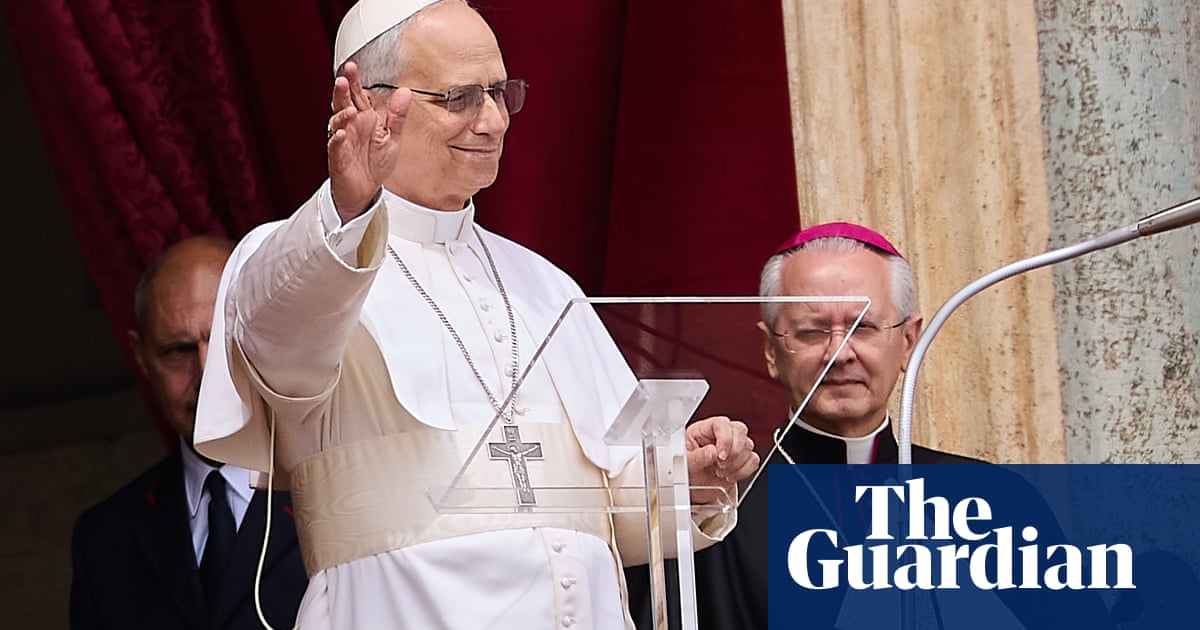Pope Leo XIVhas called for a just and lasting peace in Ukraine and pleaded for an end to global conflicts, which he likened to a “third world war in pieces”.
In his first Sunday address at the Vatican, thenew pontiffurged an immediate ceasefire and humanitarian aid inGazaand the release of all hostages. He also welcomed thetruce between India and Pakistanand referenced the end of the second world war in 1945.
Appearing at a window of the Apostolic Palace, Leo blessed tens of thousands of people gathered in St Peter’s Square and echoed pleas for peace by his predecessor,Pope Francis. “I, too, address the world’s great powers by repeating the ever-present call, ‘never again war’,” he said.
It was the pope’s first public appearance at the palace since he stepped out on a balcony last Thursday after a two-day conclave thatelected him as the 267th pope. Previously a little-known cardinal, Robert Prevost, 69, is thefirst US leaderof the Catholic church.
Vatican observers seeking clues to the direction and style of his papacy noted he delivered the blessing not from a studio window used by his predecessors, but from the central balcony. He wore a simple white cassock without the formal red cape, and instead of reciting the Latin Regina Caeli prayer, he sang it.
“I carry in my heart the sufferings of the beloved Ukrainian people,” he said. “Let everything possible be done to achieve genuine, just and lasting peace as soon as possible.” Speaking amid renewed internationalpressure on Russia to halt hostilities, Leo called for the release of war prisoners and the return of Ukrainian children to their families.
He also urged a ceasefire in Gaza, which Israeli forces have continued to pound, the return of hostages seized in the Hamas attack of 7 October 2023, and humanitarian aid for the “exhausted civilian population”. Food and medicine shortages have left babiesseverely malnourished.
Leo noted that many countries celebrated Mother’s Day on Sunday and wished all mothers, “including those in heaven”, a happy Mother’s Day.
Earlier, he celebrated a private mass in the grottoes beneath St Peter’s, which contain the tombs of previous popes. On Saturday, Leo crossed Rome to pray at the tomb of Francis, who broke with tradition by asking to be buried at the basilica ofSanta Maria Maggiore. Leo’s formal installation mass is due next Sunday, 18 May.
